LSU Breaks Record on Number of Students Awarded Prestigious National Science Foundation Graduate Research Fellowships
Eleven graduate students awarded and one receives honorable mention from LSU
04/30/2021
BATON ROUGE – A record high of 11 LSU students have been selected for the highly competitive National Science Foundation, or NSF, Graduate Research Fellowship this year. This prestigious fellowship supports outstanding graduate students in NSF-supported disciplines who are pursuing research-based master’s and doctoral degrees. NSF received more than 13,000 applications for 2,000 fellowships this year.
“The high number of LSU graduate students and alumni who are NSF graduate research fellows this year is a testament to the caliber of our students at LSU. We are so proud of their accomplishments. Fellowships like these offer tremendous support for our graduate students and early career researchers,” said Marybeth Lima, the Cliff & Nancy Spanier Alumni Professor and LSU Department of Biological and Agricultural Engineering chair, who co-directs a workshop series to help prepare LSU students to apply for the fellowship with Sheri Wischusen, director of undergraduate research for the College of Science. The workshop series is co-sponsored by the LSU College of Engineering and LSU College of Science.
NSF’s five-year fellowship includes three years of financial support including an annual stipend of $34,000 and $12,000 to cover tuition and fees.
Seven of the 11 fellows are pursuing their graduate degrees at LSU. Four are LSU alumni who are pursuing graduate studies at other universities including one applicant who received an honorable mention. Of the seven NSF graduate student fellows at LSU, four are participants in the Louis Stokes Alliance for Minority Participation Bridge to the Doctorate, or LS-AMP BD, program, supported by NSF to encourage students from underrepresented groups to pursue Ph.D. degrees in STEM disciplines.
“When we broaden our fields of research and open it to people with diverse perspectives and experiences, the research becomes more creative and innovative. For decades, programs like the Bridge to the Doctorate have fostered tremendous talent among underrepresented minorities and women in STEM through individualized mentoring, coaching, interpersonal development and enriched academic services and support at LSU. I am so happy for all of the LSU Tigers on their accomplishments and extremely proud of our BD Fellows and the work they put into achieving this prestigious goal,” said Tyrslai Williams-Carter, the director of the LSU Office of Strategic Initiatives.
This year’s LSU NSF Graduate Research Fellows include:
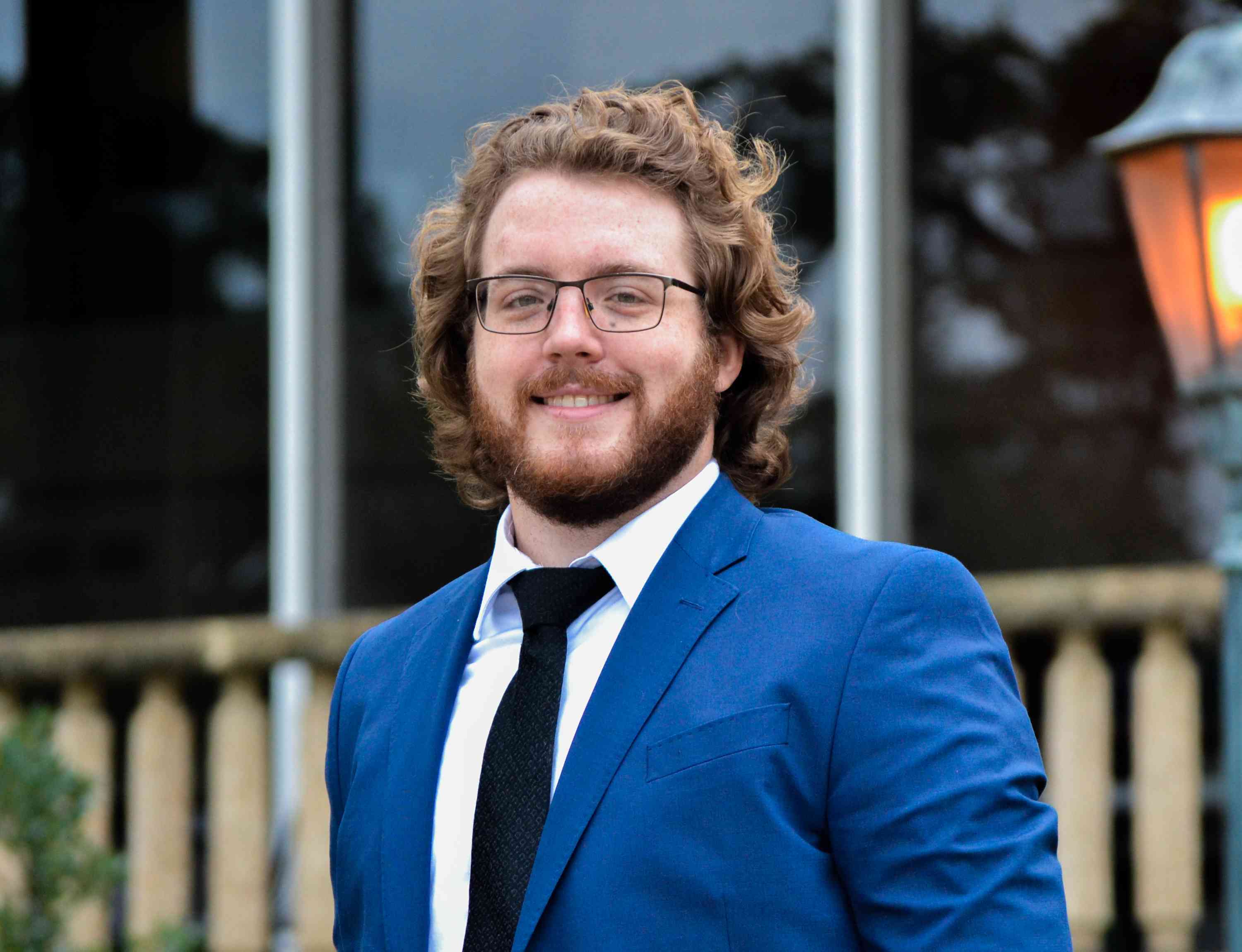 Chase Matthew Anselmo from Rosepine, Louisiana is pursuing his Ph.D. in behavioral neurosciences investigating
how sensory information is processed in the brain and how the brain uses that information
to produce contextual behaviors with advisor Karen Maruska. He is studying the fish,
A. burtoni, in which the males become bright yellow and red when they’re ready to
reproduce and the females can see these colors better when they are ready to reproduce.
He is investigating how reproductive hormones might allow females to cyclically adjust
their visual sensitivity across the reproductive cycle, which will tell us how hormones
can affect the way that animals, including humans, perceive the world. He hopes to
lead his own research lab in the future and be a personal and professional mentor
to people at all education levels.
Chase Matthew Anselmo from Rosepine, Louisiana is pursuing his Ph.D. in behavioral neurosciences investigating
how sensory information is processed in the brain and how the brain uses that information
to produce contextual behaviors with advisor Karen Maruska. He is studying the fish,
A. burtoni, in which the males become bright yellow and red when they’re ready to
reproduce and the females can see these colors better when they are ready to reproduce.
He is investigating how reproductive hormones might allow females to cyclically adjust
their visual sensitivity across the reproductive cycle, which will tell us how hormones
can affect the way that animals, including humans, perceive the world. He hopes to
lead his own research lab in the future and be a personal and professional mentor
to people at all education levels.“As an undergraduate student, I joined a research lab to pad my CV for medical school and unexpectedly fell in love with the researching role. I was fortunate to find my calling on a whim. My advice to future STEM students is to enter STEM with an open mind and experiment with a range of multidisciplinary studies, even with fields outside of STEM, like humanities and arts, to learn what makes you happy,” he said.
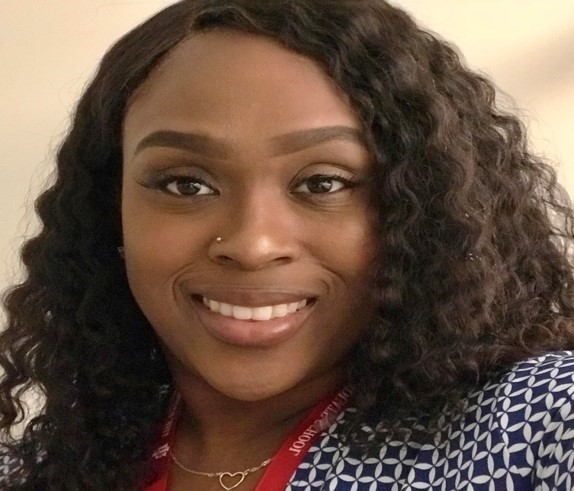 Rasidah O. Ali, a BD Fellow from Dallas, Texas, is pursuing her Ph.D. in chemistry with advisor
Louis Haber. She uses Second Harmonic Generation, or SHG, spectroscopy in studying
liposomes, which are small vesicles made of phospholipids that resemble cell membranes.
By examining fundamental molecule-membrane interactions, modifications in drug delivery
can be improved and enhanced.
Rasidah O. Ali, a BD Fellow from Dallas, Texas, is pursuing her Ph.D. in chemistry with advisor
Louis Haber. She uses Second Harmonic Generation, or SHG, spectroscopy in studying
liposomes, which are small vesicles made of phospholipids that resemble cell membranes.
By examining fundamental molecule-membrane interactions, modifications in drug delivery
can be improved and enhanced. “We focus on using different types of dyes and liposomes with various functional groups and charges to enhance physiochemical interactions,” she said.
She is interested in working in the nanomaterial industry and continuing her outreach work within her community.
“My advice to STEM students like myself is: Do not be in a box, do the unexpected,” she said.
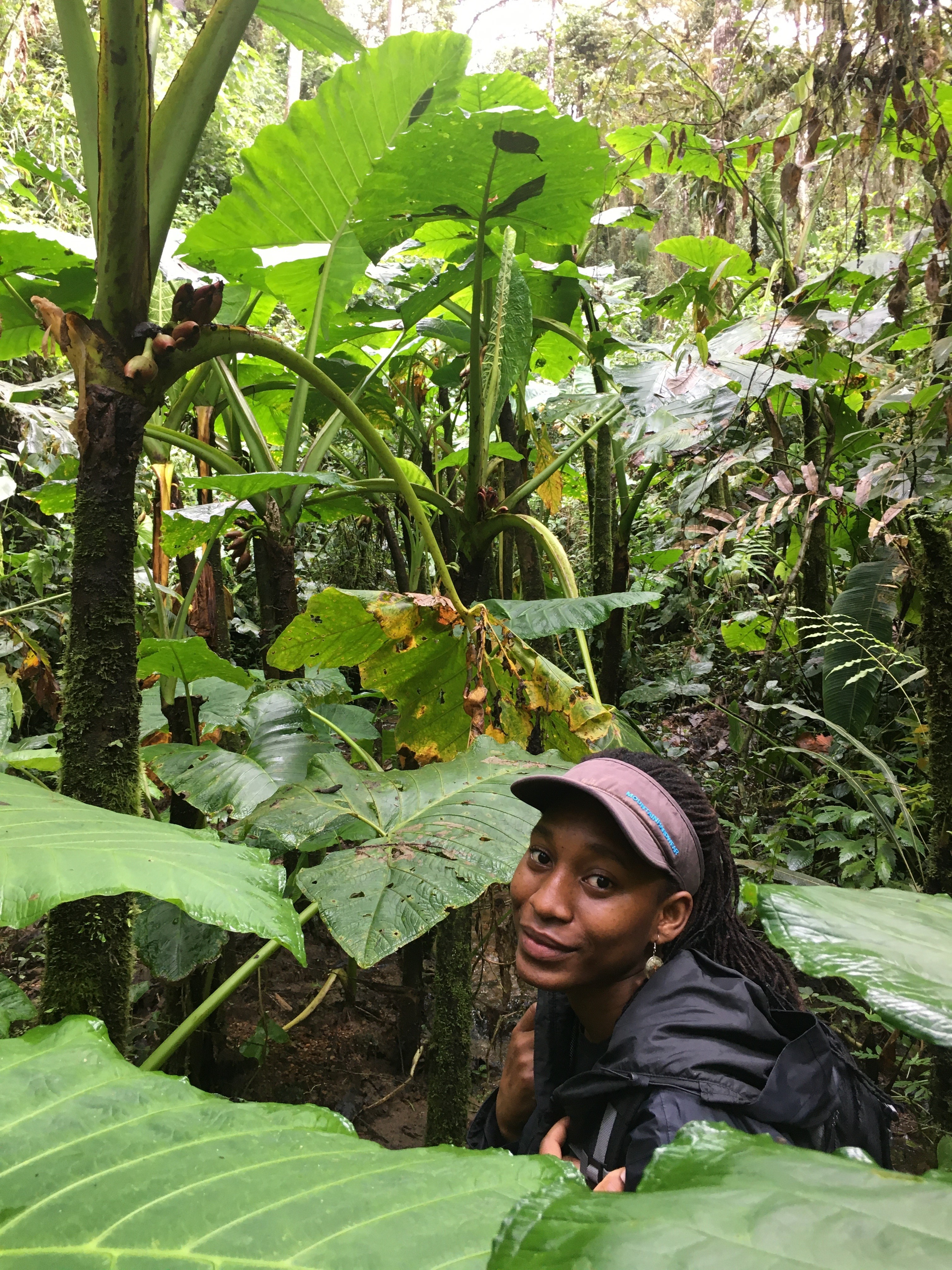 Laymon Danamarie Ball from Rancho Cucamonga, California is pursuing her Ph.D. in systematics and biodiversity
with advisor Laura Lagomarsino. She is studying pollination syndrome evolution in
the context of biogeography using the flowering plant tribe Hillieae in the Rubiaceae
family. Her career goals include pursuing a post-doctoral researcher position where
she can continue to build on her research skills while studying plant evolution and
pollination biology and become a professor at a research-intensive university.
Laymon Danamarie Ball from Rancho Cucamonga, California is pursuing her Ph.D. in systematics and biodiversity
with advisor Laura Lagomarsino. She is studying pollination syndrome evolution in
the context of biogeography using the flowering plant tribe Hillieae in the Rubiaceae
family. Her career goals include pursuing a post-doctoral researcher position where
she can continue to build on her research skills while studying plant evolution and
pollination biology and become a professor at a research-intensive university.“Take opportunities that spark your interest even if it takes you out of your comfort zone. That initial interest could turn into a passion!” she said.
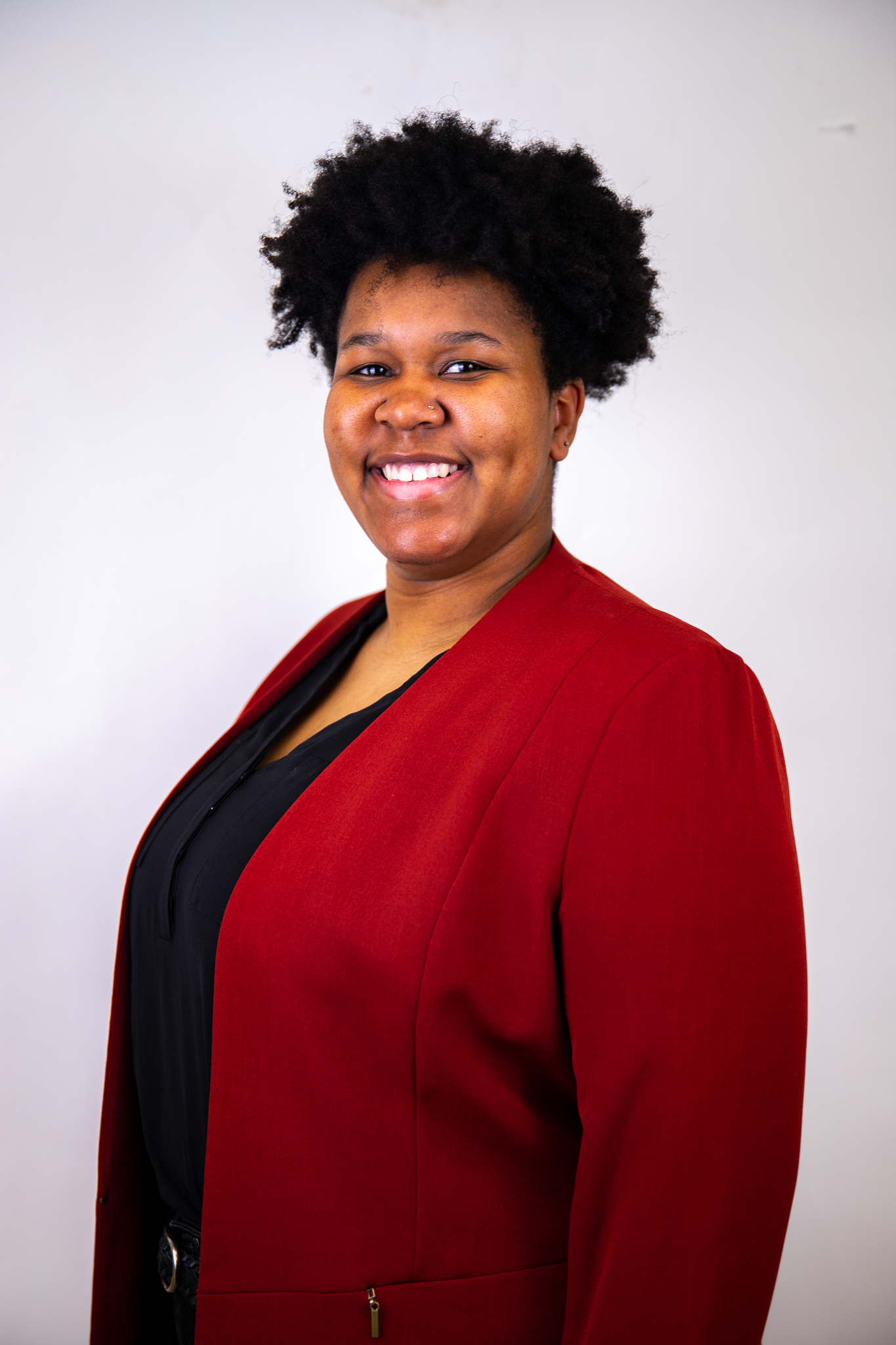 Keilah Davis, a BD Fellow from Durham, North Carolina, is pursuing her Ph.D. in astrophysics with
advisor Catherine Deibel. Her research is in experimental nuclear astrophysics and
the title of her proposed research is “Indirect Reaction Rate Measurements for X-ray
Burst Nucleosynthesis.”
Keilah Davis, a BD Fellow from Durham, North Carolina, is pursuing her Ph.D. in astrophysics with
advisor Catherine Deibel. Her research is in experimental nuclear astrophysics and
the title of her proposed research is “Indirect Reaction Rate Measurements for X-ray
Burst Nucleosynthesis.”
“Our group investigates nuclear reactions to gain insights about explosive stellar
environments,” she said.
She plans to continue her research career as a professor or national lab scientist.
Her advice to future STEM students is: “You are capable. And if you don’t believe
that yet, listen to the people who do.”
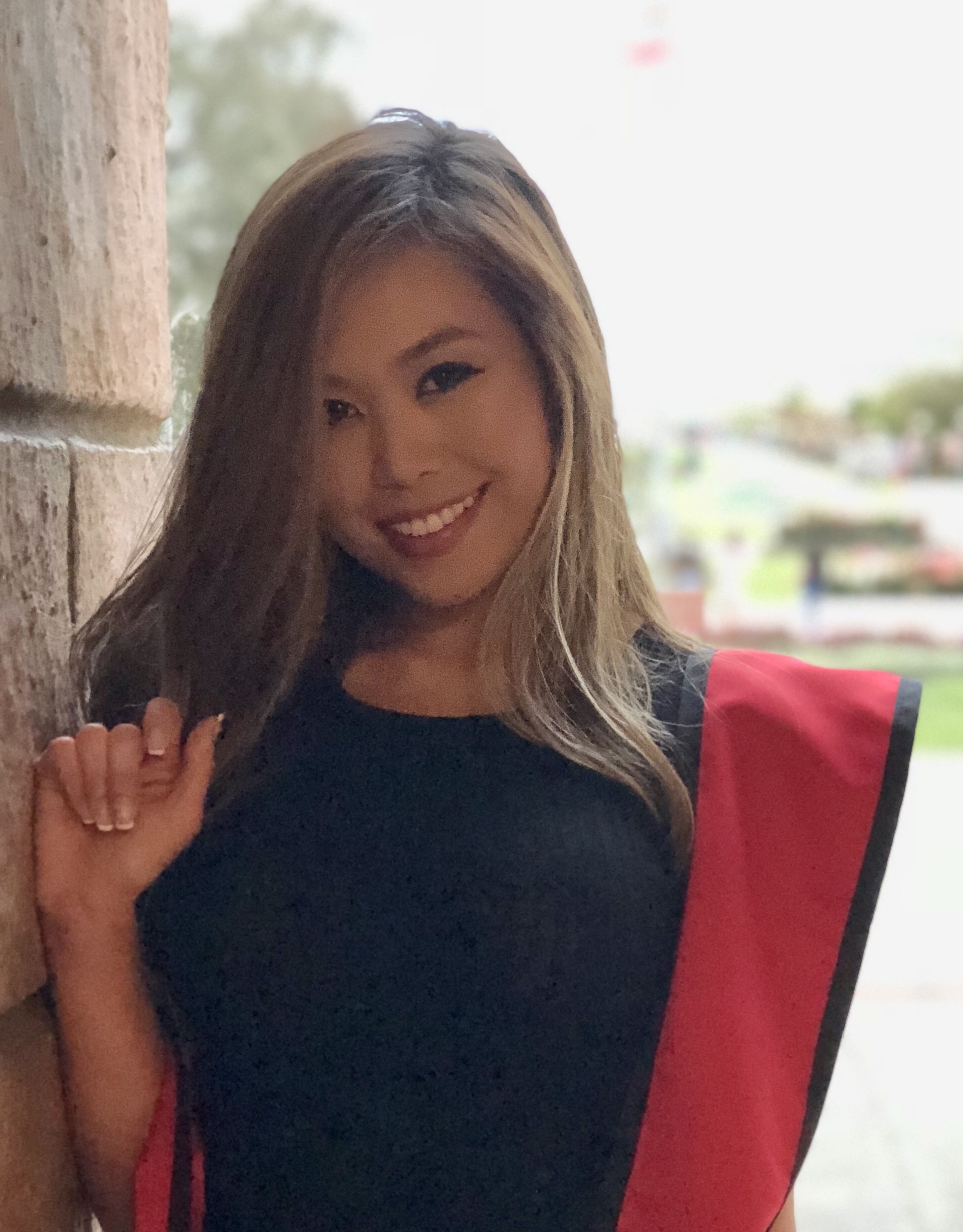 Tiffany Duong, a BD Fellow from San Diego, California, is pursuing her Ph.D. in organic chemistry
with advisor Justin Ragains. Her doctoral research includes carbohydrate synthesis
and method development of 1,2-cis selective glycosylation. She plans to pursue a career
in the pharmaceutical industry working in drug development and discovery.
Tiffany Duong, a BD Fellow from San Diego, California, is pursuing her Ph.D. in organic chemistry
with advisor Justin Ragains. Her doctoral research includes carbohydrate synthesis
and method development of 1,2-cis selective glycosylation. She plans to pursue a career
in the pharmaceutical industry working in drug development and discovery.
“Do not let failures, whether in course work or in the lab, discourage you from pursuing
a path towards science. The most rewarding outcomes are a result of struggle and perseverance.
Fight for your dreams and always stay true to yourself,” she said.
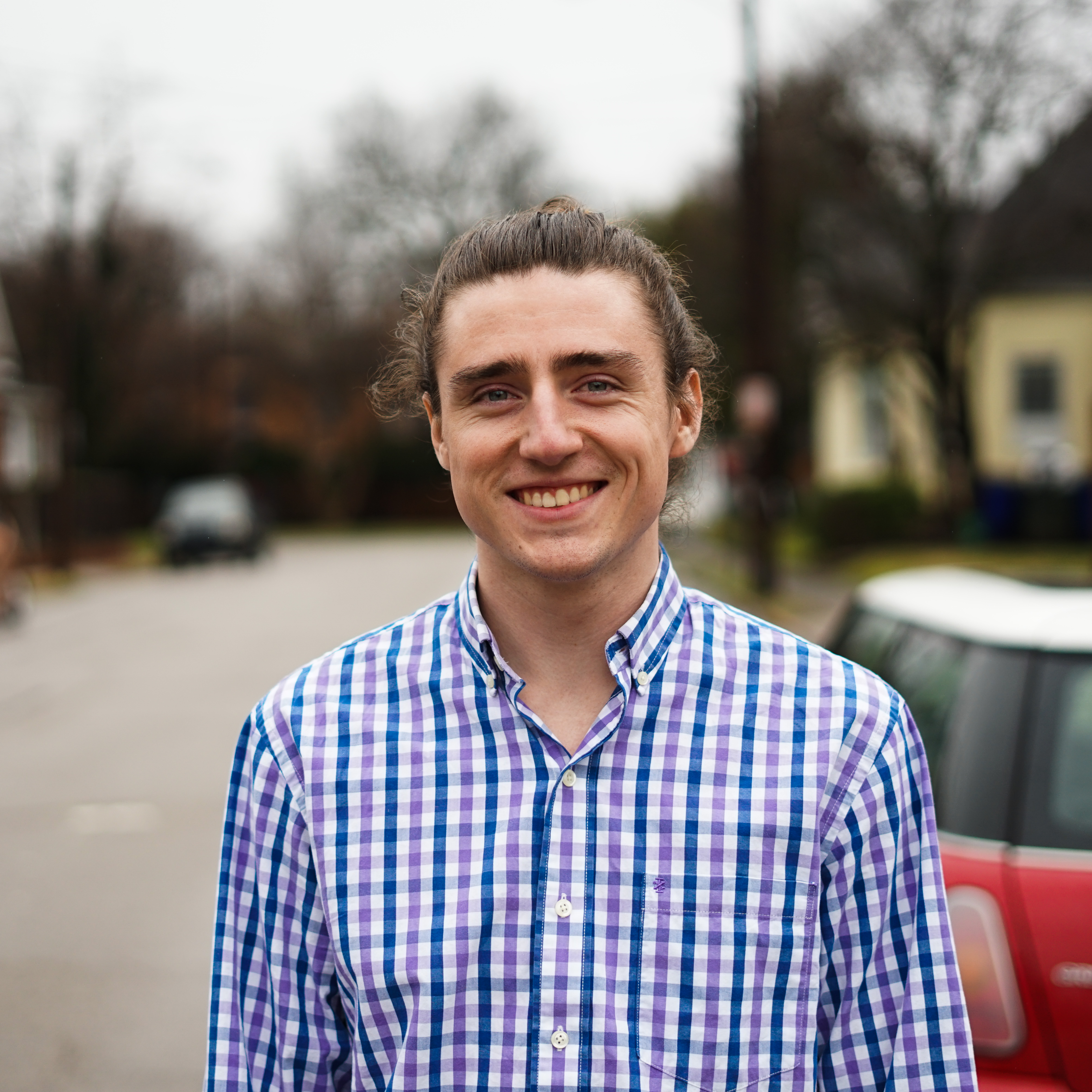 Benjamin H. Farmer from Lexington, Kentucky is pursuing his Ph.D. in coral reef ecology with advisor
Dan Holstein. He is modeling the spread of Stony Coral Tissue Loss Disease in the
U.S. Virgin Islands and researching the connectivity of important fish species in
the Mesoamerican Reef region. His career goals include leading a research program
at the intersection of climate change resilience and coral reef science at a field
station, government agency, non-profit or academic institution.
Benjamin H. Farmer from Lexington, Kentucky is pursuing his Ph.D. in coral reef ecology with advisor
Dan Holstein. He is modeling the spread of Stony Coral Tissue Loss Disease in the
U.S. Virgin Islands and researching the connectivity of important fish species in
the Mesoamerican Reef region. His career goals include leading a research program
at the intersection of climate change resilience and coral reef science at a field
station, government agency, non-profit or academic institution.
“Science, as with any field, is only as strong as it is diverse and equitable. I believe
that we can’t solve the many problems of today’s world without everyone included and
given every opportunity to lead,” he said. “If I can recommend one thing, it is to
be fearless in reaching out to anyone and everyone who you look up to. If you are
passionate about a topic in STEM, decide who makes you the most excited about the
field and try to set up a meeting with them. They might not always email back or might
be less enthusiastic than you had hoped but keep trying. It is so, so worth it – finding
the right mentors can truly mean all the difference. Today, I am researching the topics
in marine biology that I have dreamed about for years, and I am indebted to all the
wonderful mentors who propelled me along the way.”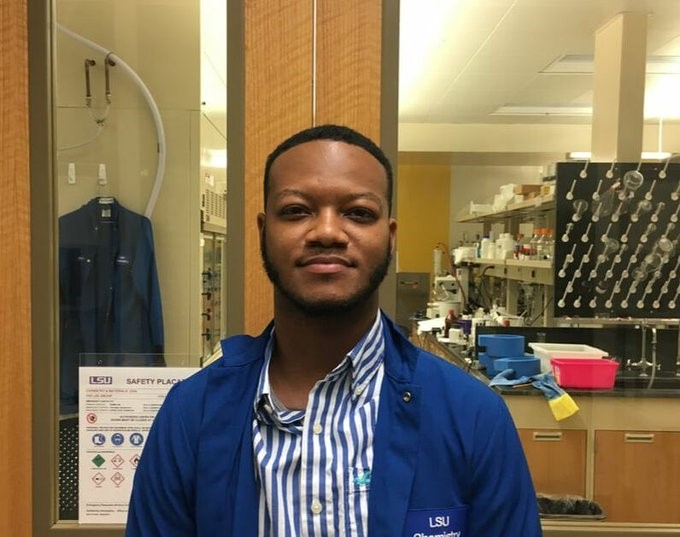 Marvin Stewart, a BD Fellow from St. Francisville, Louisiana is pursuing his Ph.D. in chemistry
with advisor Semin Lee. His research is in ligand design for alkyne metathesis.
Marvin Stewart, a BD Fellow from St. Francisville, Louisiana is pursuing his Ph.D. in chemistry
with advisor Semin Lee. His research is in ligand design for alkyne metathesis.
“I am not sure what the future holds for me, but I intend to learn as much as I can
throughout this process, while being a positive role model in my community,” he said.
“My advice would be to follow their passion, and never give up. Coming from an education
background, teaching math in Baker School district, I often felt that it was too late
for me to pursue a doctoral degree. Dr. Lee and the [Bridge to Doctorate] fellowship
program helped me to tap into my full potential, and for that I will be forever grateful.”
Four outstanding LSU alumni are applying their NSF fellowships towards graduate degrees
at other universities. They include Amy Elise Adair who is studying artificial intelligence at Rutgers University - New Brunswick; Manon Bart who is studying quantum information science at Tulane University; Raleigh Goodwin who is studying social psychology at the University of Oregon – Eugene; and McKenzie Anne Windham who is studying biomedical engineering at Vanderbilt University. LSU alumnus Hunter Wayne Simonson received an honorable mention and is studying chemical engineering at the University
of Colorado at Boulder.
About the Bridge to the Doctorate Program
The Bridge to the Doctorate, or BD, Program is a Louis Stokes Alliance for Minority
Participation, or LS-AMP, Initiative supported by the National Science Foundation.
This endeavor provides holistic support for graduate students from underrepresented
groups in pursuit of PhDs in Science, Technology, Engineering and Mathematics, or
STEM, disciplines. BD participants receive fellowships, individualized mentoring,
academic coaching, professional development, research opportunities and professional
conference participation.
Additional Links:
2021 National Science Foundation Graduate Research Fellows: https://www.research.gov/grfp/AwardeeList.do?method=loadAwardeeList
Bridge to the Doctorate Program: www.lsu.edu/bd
LSU Chemistry Graduate Students Receive Prestigious NSF Fellowships: https://lsu.edu/science/chemistry/news/2021/nsf_grfp_2021.php
Contact Alison Satake
LSU Media Relations
510-816-8161
[email protected]